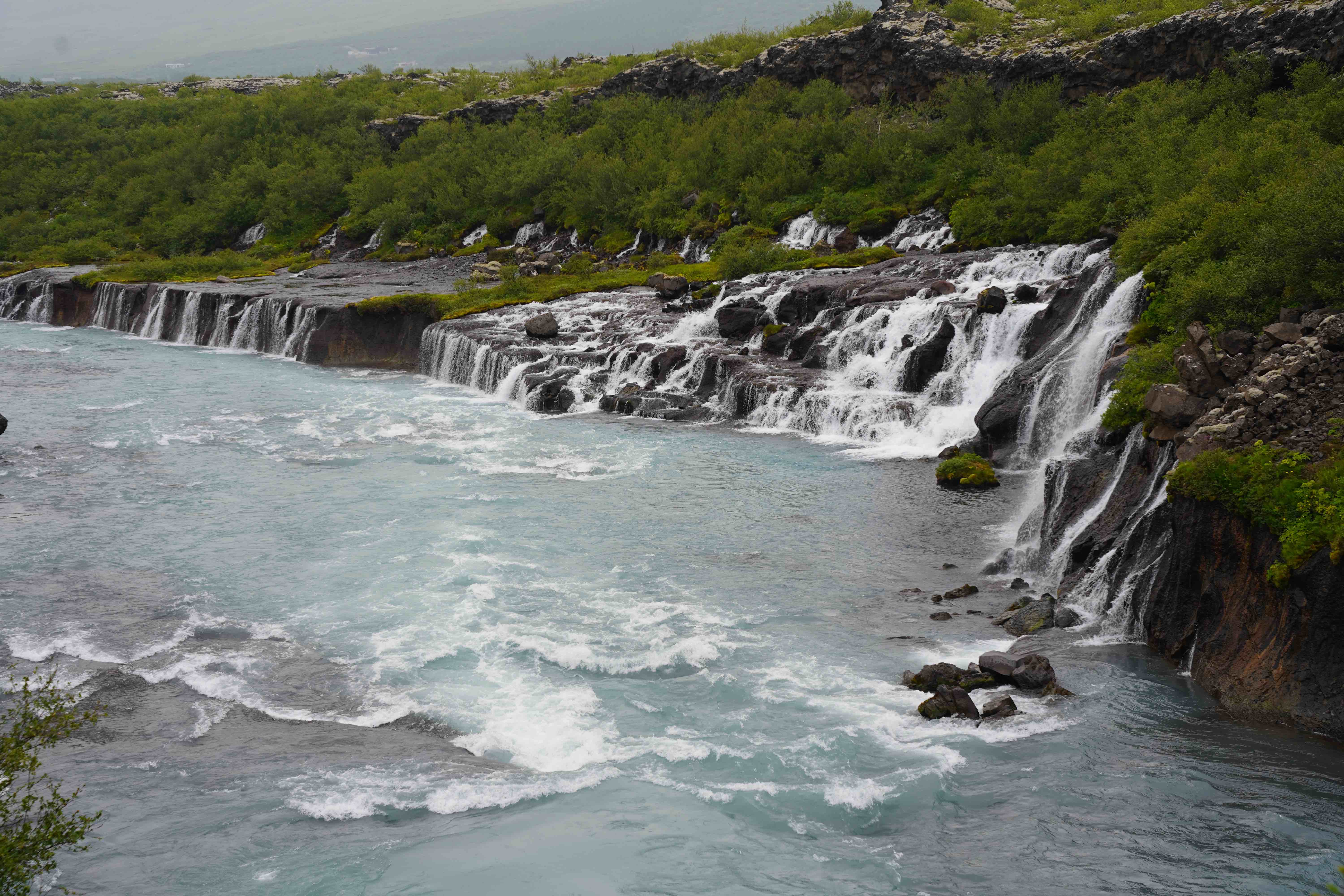A Love Letter From Iceland
An EV takeover will likely remove the last of the combustion engine hum, which should make the elves very happy.
I turned 50 yesterday and am currently on vacation in Iceland, eating my weight in Cinnamon Rolls and licorice. This place is just absolutely bonkers beautiful. Yes, I tried to buy high quality offsets to make up for the carbon it took to get here, but that will be the topic of another blog post. Instead of providing you with quality economic analysis of a policy puzzle du jour, I will provide you with five observations from a place I highly encourage you visit if you still fly.

First, Iceland is living the renewable dream with 100% of its grid being fueled by renewables, which is of course due to ample hydro and geothermal resources. Even more impressive is that 85% of its primary energy needs come from renewables. Iceland is the world’s largest green energy producer per capita and largest electricity producer per capita, with approximately 55MWh per person per year (compared to 6 MWh for the EU). Almost all space heating comes from geothermal sources. The remaining 15% are mostly transport. The population of Iceland is of course small, about half the size of the least populous US state (Wyoming).
Second, electricity is inexpensive, with an average all-in price of about 15 cents per kWh, which makes it slightly cheaper than what US consumers are paying and much cheaper than what most Europeans are paying. Industrial and commercial users are paying half that rate. What is also noteworthy is that electricity prices in Iceland (PPP adjusted) have stayed constant for the better part of a decade, whereas they have increased significantly in most of neighboring Europe.
Third, given these ample energy resources, Iceland’s largest trade oriented manufacturing industry is aluminum smelting, which is of course highly electricity intensive. Tourism has become massively important since the financial crisis in 2008-2011. Some electricity intensive companies are also shifting their operations here, due to the favorable relative prices, which is what our beloved economic theory would predict. This would be even more desirable if this activity comes from places with dirtier grids.
Fourth, I am not sure whether this is due to the lack of combustion in the place, or the sparse population, but this place is quiet! Even the city of Reykjavik is missing the background hum we have all become so accustomed to even in suburban settings. Getting around by bus, e-scooter, or on foot is easy. The sounds of the city are dominated by human conversation and laughter, rather than the deafening noise of internal combustion engines. While economists tend to understudy the effect of noise on human well being, the place exudes a sense of calm and peacefulness.

Finally, the food is local in the good sense. While I am not opposed to large scale agriculture as much as a Berkeley economist is thought to be, walking into supermarkets and restaurants, the available foods are dominated by local sources of protein, fat and carbohydrates (did I mention cinnamon rolls?). This of course makes sense if you can power massive greenhouses with renewable sources of energy, have ample water and can hence grow food year around – even when the sun does not shine.
Iceland’s challenge, much like that of the rest of the world, hence lies in electrifying the transportation sector. They have set themselves a goal to achieve this by 2040. You can tell progress is being made, as (PH)EVs are everywhere. A combination of $10/gallon gas with generous government incentives and an aggressive rollout of charging infrastructure surely is helping push these electron fueled chariots into the market place. I do note a large number of massive pickup trucks in the more rural regions, and it will be interesting to see whether electric trucks like the Ford Lightning will eventually capture this share of the market here as well. An EV takeover will likely remove the last of the combustion engine hum, which should make the elves very happy. I hope you get to enjoy some well earned rest this summer.
Suggested citation: Auffhammer, Maximilian, “A Love Letter From Iceland”, Energy Institute Blog, UC Berkeley, July 24, 2023, https://energyathaas.wordpress.com/2023/07/24/a-love-letter-from-iceland/
Keep up with Energy Institute blog posts, research, and events on Twitter @energyathaas.
Categories
Maximilian Auffhammer View All
Maximilian Auffhammer is the George Pardee Professor of International Sustainable Development at the University of California Berkeley. His fields of expertise are environmental and energy economics, with a specific focus on the impacts and regulation of climate change and air pollution.

Thanks for the writeup on your trip Iceland. My wife and I also just returned from a 10-day visit. Iceland seems to be a renewable energy Disneyland. They haven’t even tapped the amount of wind energy that could be generated, to add to the hydro and geothermal energy they have already developed. I was told by our friend that lives there that the typical average energy price for heat and electricity for a house in Reykjavik is about $125 per month US. That is impressive give their closeness to the Artic Circle and the number of months that the country is in darkness. Unfortunately, due to the very low population density, and long distances between population centers, the country is having trouble electrifying its transportation network in a cost-effective way.
If humans survive the climate change, it will be in places like this.
Let me trot out my soap box:
The oil companies are not just doing nothing, they are trying to expand their sales by getting heavily involved in plastics. And as we all can see, governments are ineffectual in curbing them.
Thus! It is up to the individual to save humanity. You, lectori, you must do what you can do. Start small, walk to the bar once and a while. (which will actually save you 30¢ and improve your health.)
We’re just gonna have to have Adam Smith whack them upside the head.
OSD